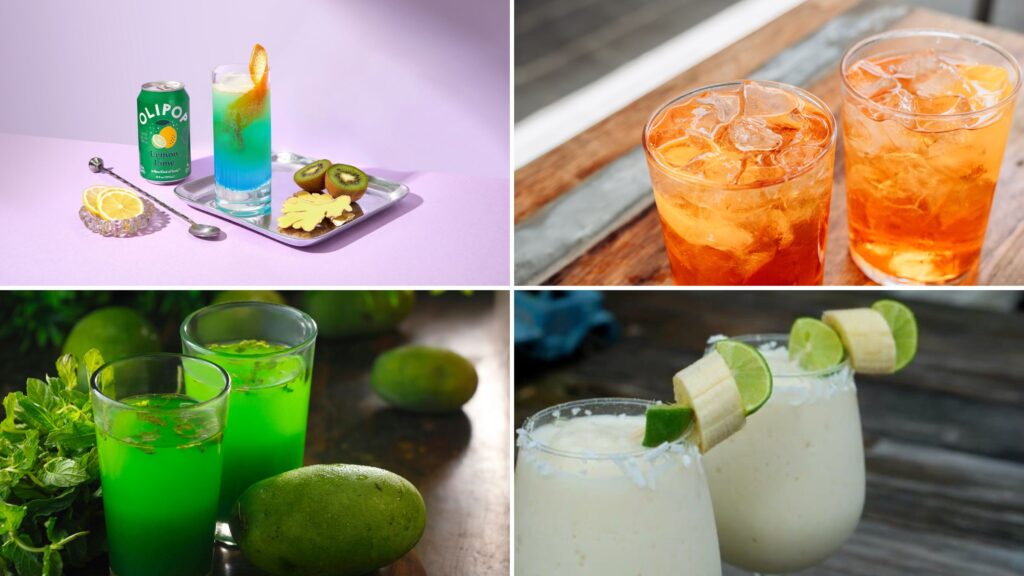“], “filter”: { “nextExceptions”: “img, blockquote, div”, “nextContainsExceptions”: “img, blockquote, a.btn, a.o-button”} }”>
New perk: Easily find new routes and hidden gems, upcoming running events, and more near you. Your weekly Local Running Newsletter has everything you need to lace up!
>”,”name”:”in-content-cta”,”type”:”link”}}”>Subscribe today.
At this point of the season, you’re probably tired of guzzling the same electrolyte powders day in and day out. After your next workout, why not belly up to the bar with rehydrating mocktail recipes instead?
Yes, you read that right—mocktails, or alcohol-free beverages, are having a moment, and for good reason. Whether taking a one-month break for Sober October or swearing off the stuff for good, triathletes are turning to non-alcoholic beverages as a way to have a special libation without alcohol’s effects on mental, physical, and emotional health.
But there’s one particular reason why athletes should be sipping on these alcohol-free drinks: many of the best mocktail recipes feature fruits, which are full of electrolytes like potassium, calcium, and magnesium. That’s right—your mocktail can be a bona-fide rehydration libation, especially when poured into a fancy glass and rimmed with a lip-smacking layer of salt. That’s why we’ve rounded up eight of the best mocktail recipes for athletes, plus provided bonus tips to get even more bang for your buck with each delicious sip.
Section divider
Banana Daiquiri Mocktail
Recipe by Alli on An Alli Event
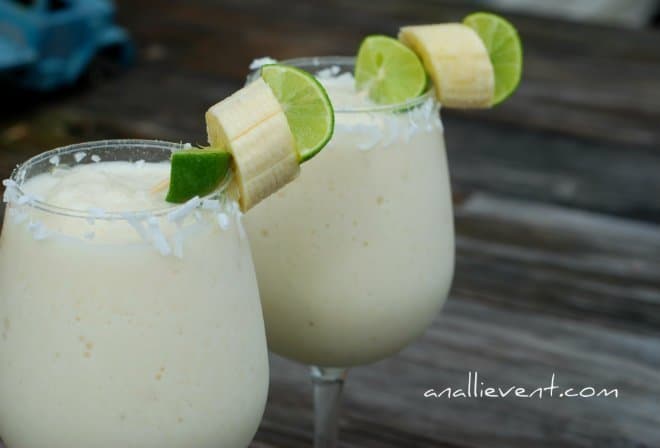
Electrolyte profile for 1 medium banana:
| Potassium | 422mg | 9% |
| Magnesium | 31.9mg | 9% |
| Sodium | 1.18mg | |
| Calcium | 5.9mg | 1% |
| Phosphorus | 26mg | 4% |
If there’s one fruit you can expect at any post-race buffet, it’s bananas. Universally celebrated as a powerhouse of potassium, bananas are also an excellent source of magnesium. They are easily digestible, and with each medium banana supplying about 27 grams of carbohydrates, they are a great fruit to eat both before and after exercise. This recipe for banana daiquiri mocktails forgoes rum, truly allowing the flavors of bananas, coconut milk, and lime juice to demonstrate their natural affinity for one another.
Ingredients:
- 2 large bananas, sliced and divided
- 1 cup coconut milk, divided
- 1 lime, juiced and divided
- 1/2 cup sugar OR sugar substitute, divided
- 6 cups ice, divided
- To Rim Glasses (optional):
- 1/2 cup shredded, sweetened coconut
- Juice of 1 lime
Steps:
- To rim the glasses: Juice one lime and pour into a saucer. Add the coconut to another saucer. Gently dip the rim of the glasses into the lime juice. Press the rim into the coconut, slowly turning the glass to get the coconut to stick to the lime juice. Set aside.
- To make the daiquiris: Add 1 sliced banana, 1/2 cup of coconut milk, 1/2 of the lime juice, 1/4 cup of sugar, and 3 cups of ice to a blender. Blend until smooth (about 1 minute). Pour into two glasses. Repeat to make two more daiquiris.
Section divider
Blue Bliss Mocktail
Recipe by @gracie_norton, courtesy of Olipop
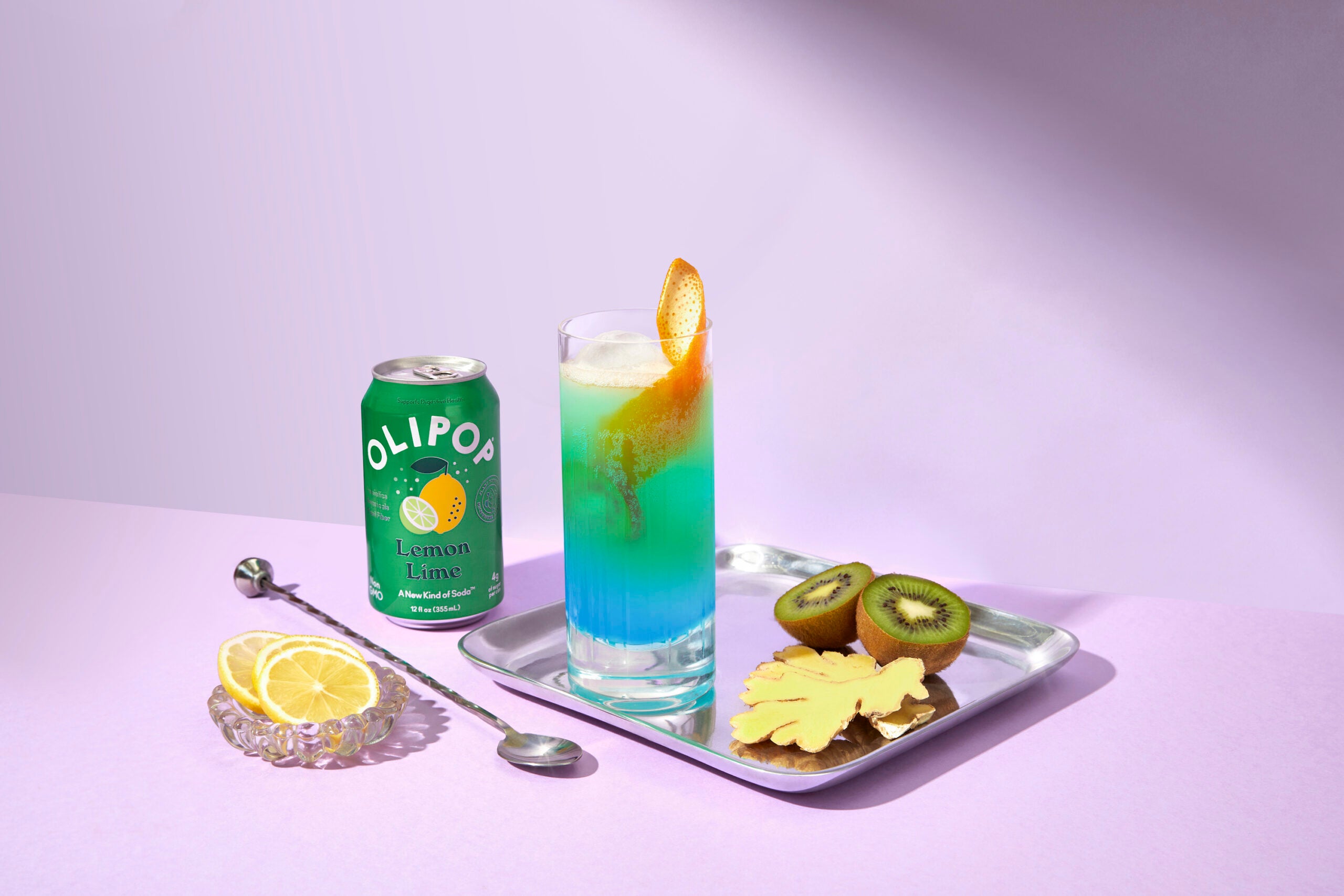
Electrolyte profile for 1 kiwi:
| Potassium | 215mg | 5% |
| Magnesium | 11.7mg | 3% |
| Sodium | 2.07mg | |
| Calcium | 23.5mg | 2% |
| Phosphorus | 23.5mg | 3% |
Electrolyte profile for 1 cup pineapple juice:
| Potassium | 325mg | 7% |
| Magnesium | 30mg | 8% |
| Sodium | 5mg | |
| Calcium | 32.5mg | 3% |
| Phosphorus | 20mg | 3% |
Kiwi and pineapple are sweet, tangy, and electrolyte-rich fruits perfect for mocktails. Both are high in antioxidants and rich in vitamin C; the latter nutrient aids the body in absorbing iron, which, among other functions, is critical for hemoglobin production (hemoglobin transports oxygen throughout the body). This recipe calls for Olipop’s Lemon Lime soda, a healthier alternative to traditional soda that includes gut-friendly prebiotic ingredients and plenty of fiber.
Ingredients:
- Olipop Lemon Lime soda
- 1/2 cup pineapple juice
- 1/4 cup aloe vera juice
- 1/2 cup water
- 1 kiwi
- 1 inch fresh ginger
- 2 tsp honey
- 1 scoop blue spirulina
Steps:
- Blend all ingredients (excluding Olipop Lemon Lime).
- Strain the mixture into a cup of your choice.
- Add the blended mixture to Olipop Lemon Lime in the same cup.
Optional:
Consider adding soaked overnight chia seeds or L-glutamine powder before mixing with Olipop.
Section divider
Raspberry Renewal Herbal Mocktail
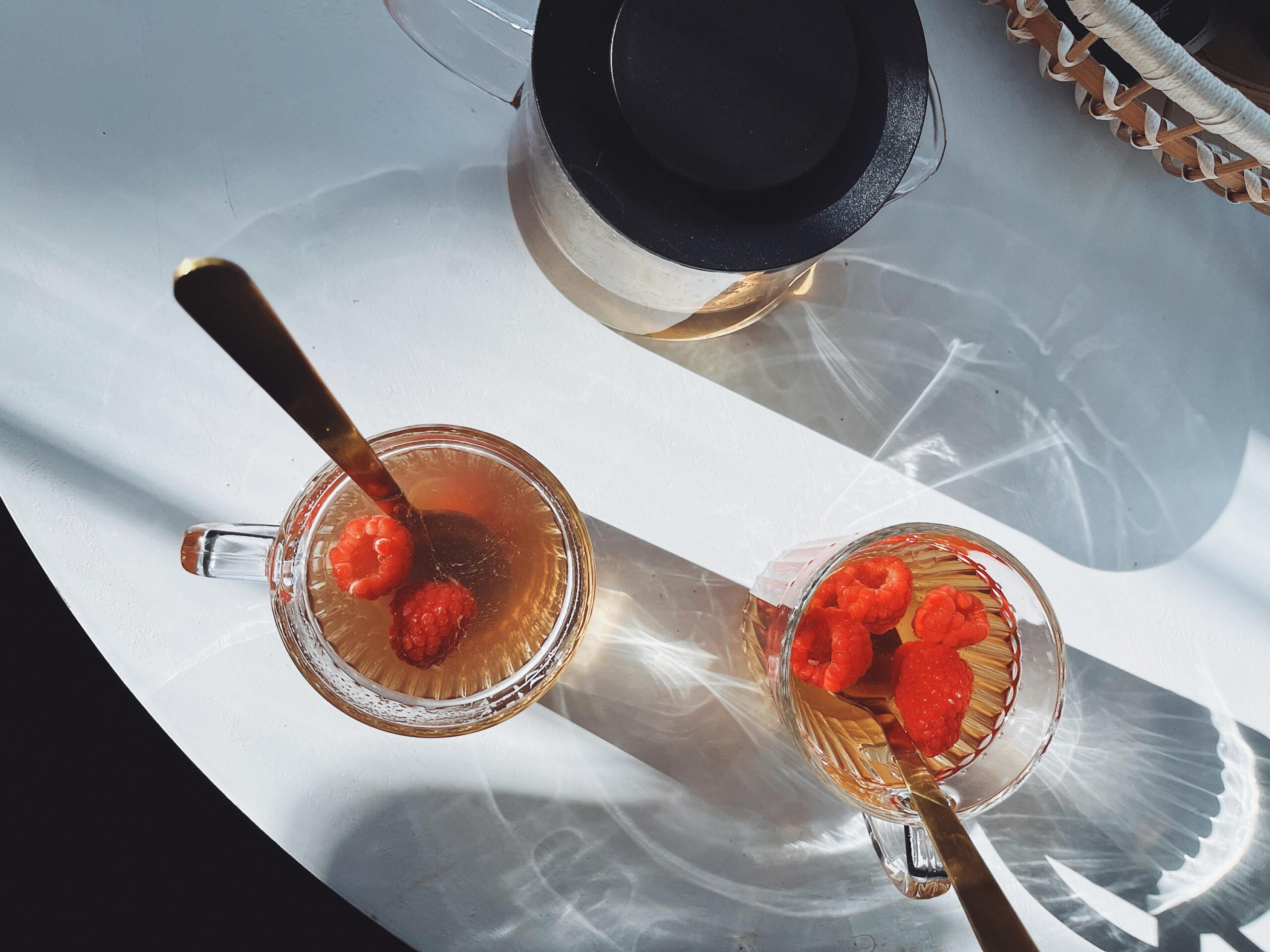
Electrolyte profile for 1 cup raspberries:
| Potassium | 186mg | 4% |
| Magnesium | 27.1mg | 7% |
| Sodium | 1.23mg | ,1% |
| Calcium | 30.8mg | 3% |
| Phosphorus | 37.5mg | 5% |
Electrolyte profile for 1 cup coconut water:
| Potassium | 404mg | 9% |
| Magnesium | 14.7mg | 4% |
| Sodium | 63.7mg | 4% |
| Calcium | 17.2mg | 2% |
| Phosphorous | 12.2mg | 2% |
Raspberries boast high levels of magnesium, an electrolyte that plays many roles in the body, including the transportation of two other electrolytes, calcium and potassium, across cell membranes. Raspberries are also high in phosphorus, a mineral essential to bone health. In addition to raspberries, this mocktail recipe features coconut water, which is famously rich in potassium and is even a source of sodium. This recipe takes five minutes to make and serves one thirsty triathlete.
Ingredients:
- 6 oz brewed Raspberry Renewal Tea, chilled
- 4 oz coconut water
- A few fresh raspberries
- 1 tsp raw honey
- ½ tsp Celtic sea salt
- 1 scoop of ice cubes
Steps:
- Combine everything into a cocktail shaker. Shake for 10 seconds to “wake up” the ingredients.
- Pour your now chilled electrolyte infusion into a glass, top with more ice cubes and fresh raspberries if desired, and enjoy!
Section divider
Classic Herbal Adrenal Mocktail
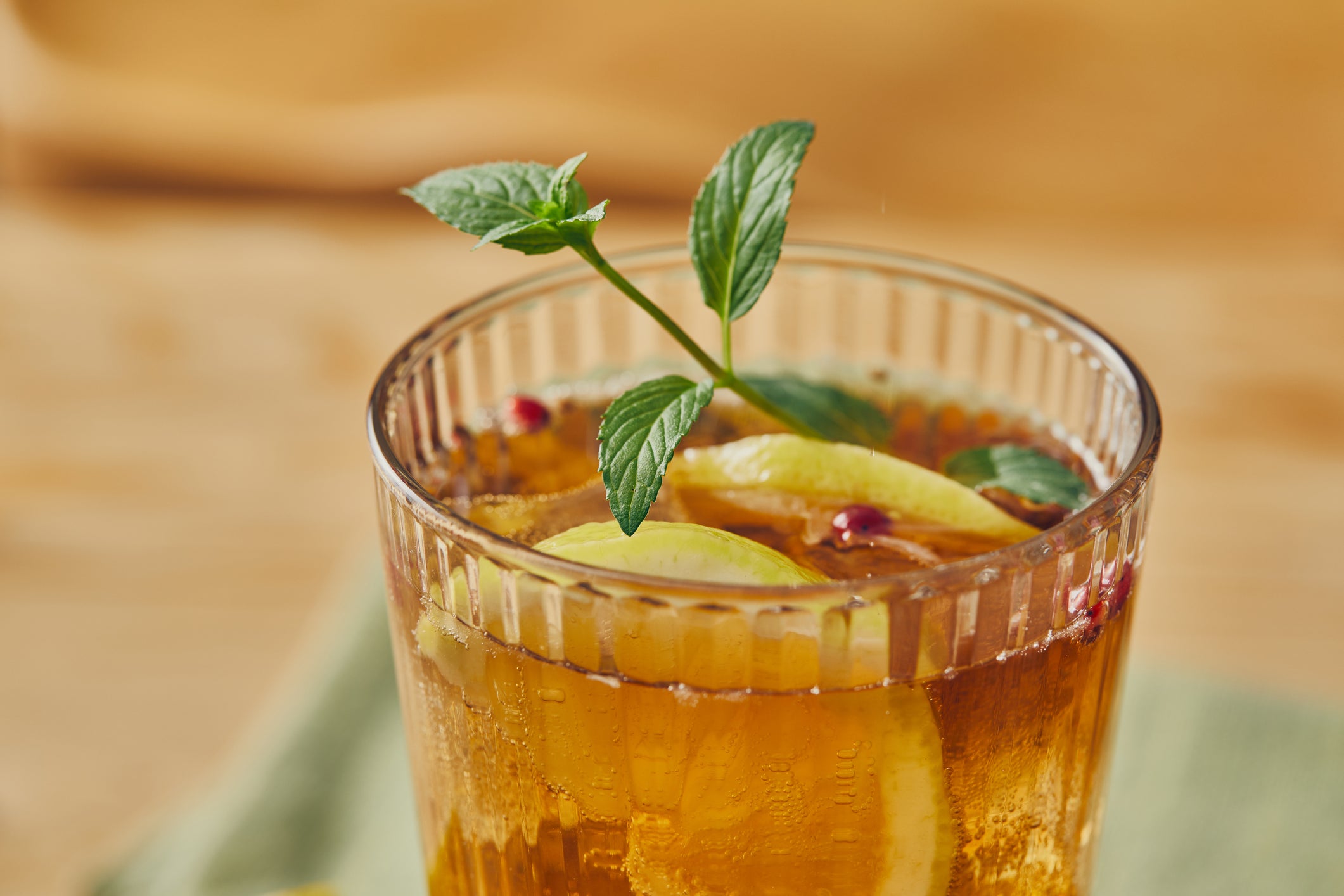
Electrolyte profile for 1 navel orange:
| Potassium | 232mg | 5% |
| Magnesium | 15mg | 4% |
| Sodium | 12.6mg | 1% |
| Calcium | 60.2mg | 6% |
| Phosphorous | 32.2mg | 5% |
Electrolyte profile for 1 cup coconut water:
| Potassium | 404mg | 9% |
| Magnesium | 14.7mg | 4% |
| Sodium | 63.7mg | 4% |
| Calcium | 17.2mg | 2% |
| Phosphorous | 12.2mg | 2% |
The other fruit you’re almost guaranteed to find at the finish line of a triathlon race? Oranges. There’s a good reason for that: Oranges are rich in calcium, potassium, phosphorus, and magnesium. Of course, they are also a great source of vitamin C, which helps keep the oxidative stress caused by your stellar race performance at bay. This recipe also features coconut water and cream of tartar, an ingredient that is surprisingly high in potassium; ½ tsp contains 248 mg, or 5% of your recommended daily amount. Like Tea & Toast Shop’s previous recipe, this makes one mocktail and requires only five minutes of your time.
Ingredients:
- 6oz brewed NORA Herbal Tea, chilled
- 4oz coconut water
- 2oz orange juice
- 1/2 oz lemon juice
- 1 tablespoon raw honey or agave
- 1 teaspoon Trace Minerals drops
- 1/2 teaspoon Cream of Tartar
Steps:
- Pour everything into a tall glass and stir until all ingredients are well-combined.
- Serve lightly chilled, with or without ice cubes, garnished with a fresh lemon wheel if desired. Enjoy!
Section divider
Frozen Zero-Proof Strawberry Daiquiri
Courtesy of Alex Elmore, professional bartender
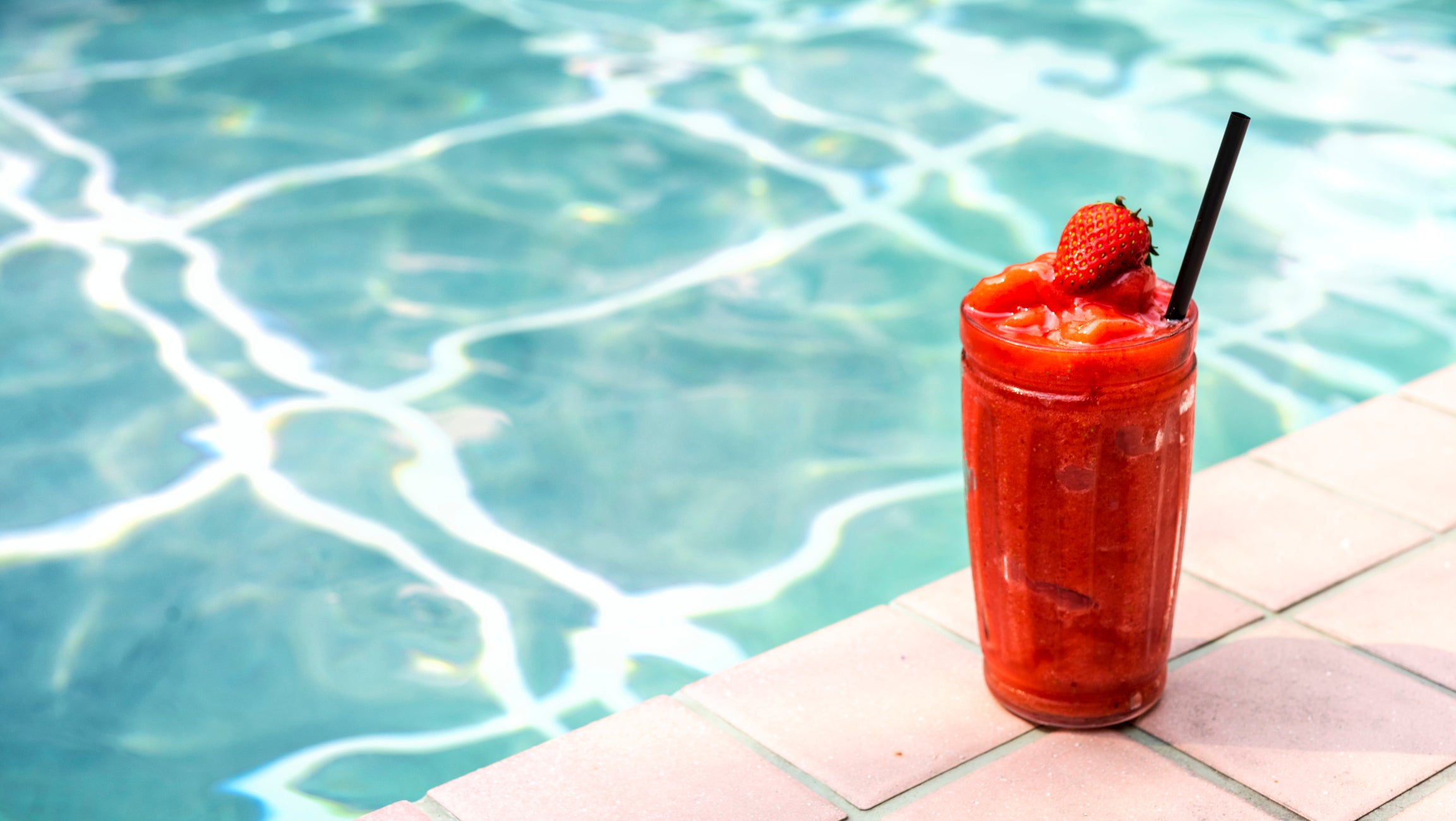
Electrolyte profile for 1 cup strawberries, whole:
| Potassium | 220mg | 5% |
| Magnesium | 18.7mg | 5% |
| Sodium | 1.44mg | |
| Calcium | 23mg | 2% |
| Phosphorous | 34.6mg | 5% |
This mocktail calls for a large handful of frozen strawberries, an antioxidant-rich fruit that is also high in fiber, vitamin C, and vitamin K. Because vitamin K is a fat-soluble vitamin, consider sipping on this mocktail while snacking on nuts, avocado toast, or a square of dark chocolate. Don’t skip the Seedlip Grove 42, which Elmore describes as “a nice bright botanical that compliments the strawberry flavor well.”
Ingredients:
- 3/4 cup frozen strawberries
- 1.5 oz Seedlip Grove 42
- .5 oz coconut water
- .75 oz lime juice
- 3 dashes saline solution
Steps:
- Blend all ingredients.
- Cut a strawberry in half, then make another cut perpendicular to the first. Place on the rim of the glass for garnish.
Section divider
Aam Panna
Courtesy of Madhu Bhatter
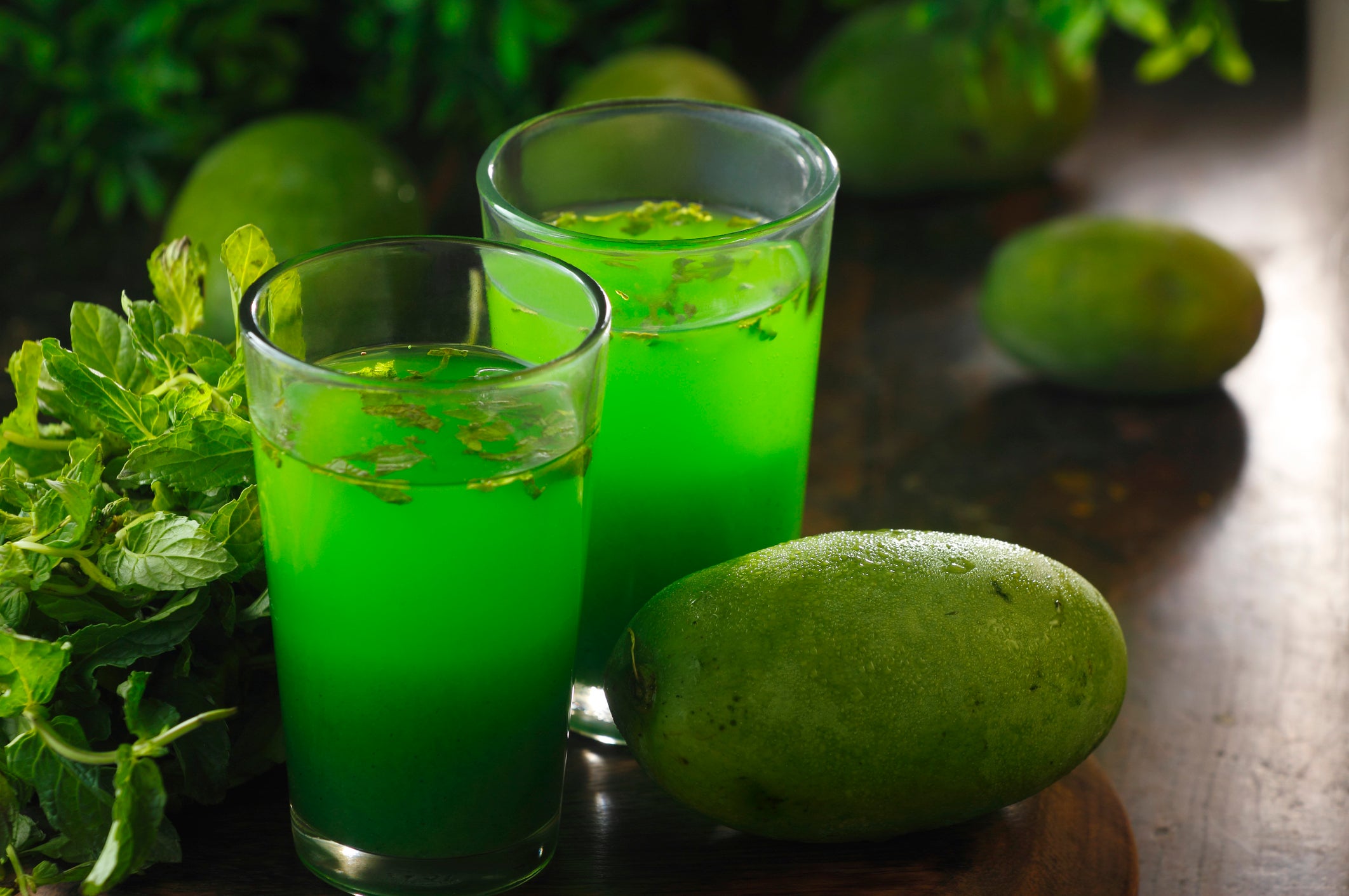
Electrolyte profile for 1 cup mango pieces:
| Potassium | 277mg | 6% |
| Magnesium | 16.5mg | 4% |
| Sodium | 1.65mg | |
| Calcium | 18.2mg | 2% |
| Phosphorous | 23.1mg | 3% |
Aam panna is a traditional Indian drink, usually consumed on hot summer days when temperatures can reach as high as 126 degrees Fahrenheit. Aam panna is made with unripe mangoes, which are higher in vitamin C than ripe mangoes and are especially valued as a source of dietary fiber (so it’s best to drink this after your workouts rather than before!). This recipe can be adjusted as per your flavor palette; remember that it’s always best to start with less spice, then add more.
Ingredients:
- 2 unripe green mangoes
- Roasted cumin powder, to taste
- Rock salt, Himalayan pink salt, or table salt, to taste
- 1 ½ cups sugar or jaggery
Steps:
- Rinse your mangoes, then add them to a pressure cooker. Cook for 2 whistles, or 8-10 minutes, then let the pressure release naturally. Alternatively, you can boil the mangoes, using 2 cups of water per mango.
- Peel the mangoes, then use your hands or a knife to remove the pulp from the mangoes and place it in the water used for boiling.
- Add roasted cumin powder and salt to taste.
- Add sugar or jaggery.
- Use an immersion blender to mix everything together.
- Strain through a fine mesh sieve, and adjust salt and sugar to your liking.
- Store covered in the refrigerator until you are ready to drink. Take 2-3 tbsp of syrup in a glass, then add water and ice. Your drink is ready to enjoy!
Section divider
Zero-Proof Aperol Spritz
Courtesy of Alex Elmore, professional bartender
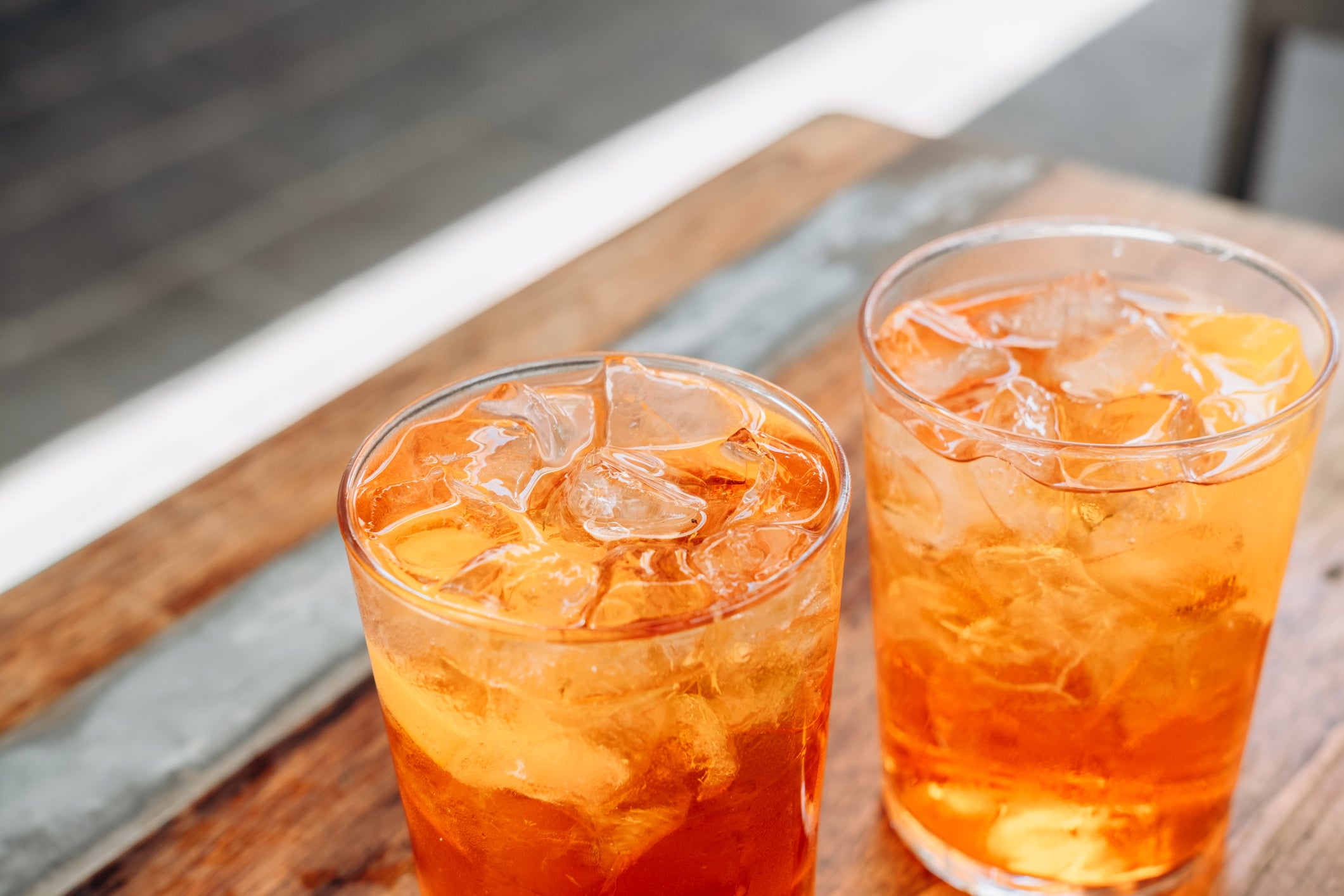
Electrolyte profile for 100g white grape juice:
| Potassium | 49mg | 1& |
| Magnesium | 4.3mg | 1% |
| Sodium | 7mg | |
| Calcium | 7mg | 1% |
| Phosphorous | 13mg | 2% |
Here is another orange-forward recipe, but one that also introduces the electrolyte potential of grape juice and saline solution. Elmore recommends that “folks add a bit of saline solution to their cocktails (just a 1:1 of salt and water) because it gives it a slight minerality that really rounds out the drink and makes for an interesting finish. This also provides essential sodium which isn’t often found in products made from fruits.” Elmore notes that you can even use an unflavored electrolyte powder in place of the salt when making this saline solution.
Ingredients:
Steps:
- Fill a wine glass with ice, then add the aperitif, champagne or grape juice, and saline solution.
- Garnish with half an orange wheel on the rim of the glass
Section divider
Zero-Proof Watermelon Mojito
Courtesy of Alex Elmore, professional bartender
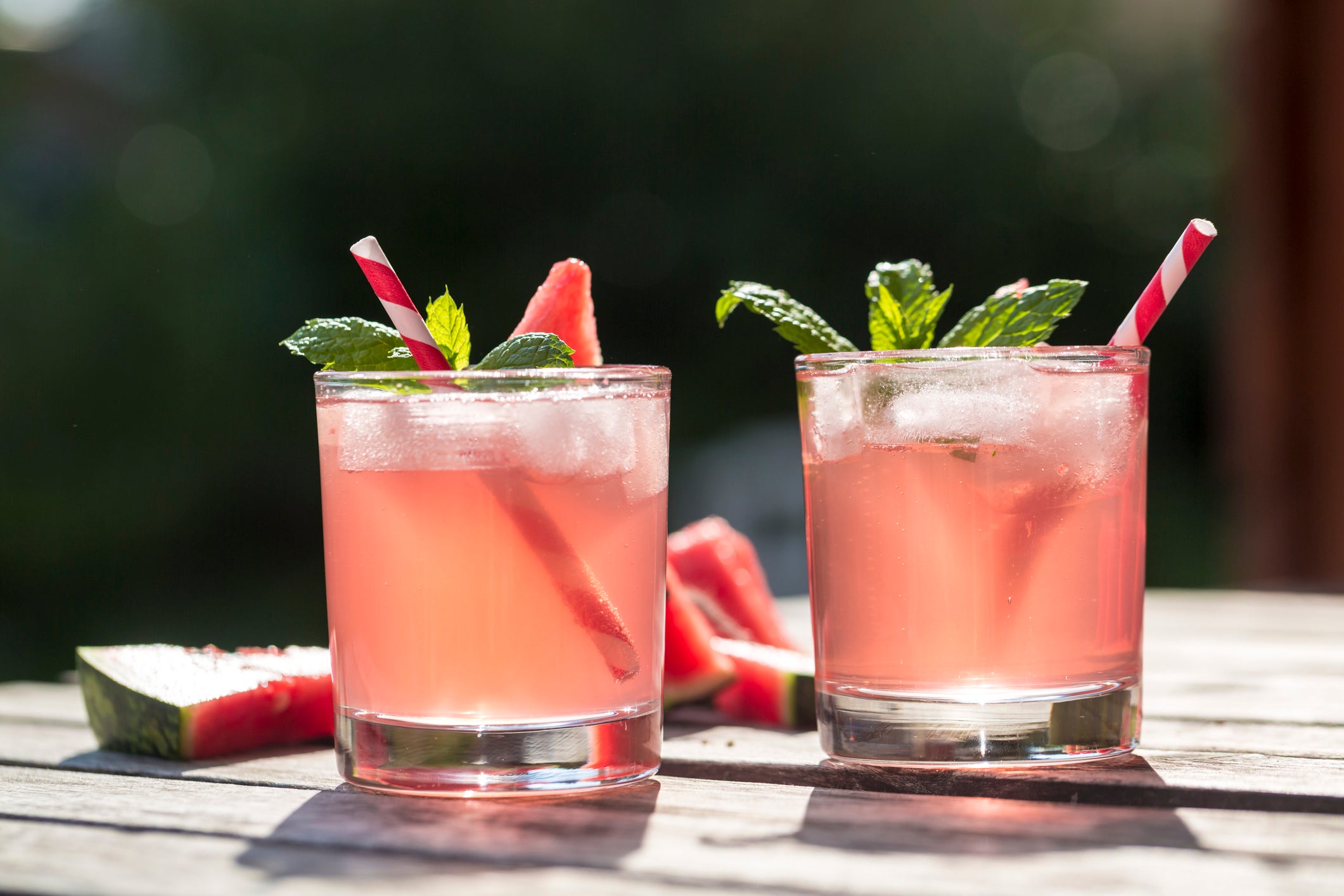
Electrolyte profile for 1 oz watermelon juice:
| Potassium | 33.6mg | 1% |
| Magnesium | 3mg | 1% |
| Sodium | .3mg | |
| Calcium | 2.1mg | |
| Phosphorous | 3.3mg |
When it comes to hydrating fruits, watermelon is at the top of the list. Though it may be humble in appearance, watermelon consists of more than just water: It is also bursting with nutrients like vitamins A and C, potassium, and magnesium. Additionally, it is a source of lycopene, an antioxidant believed to have a wide range of health benefits, such as reduced oxidative stress, anticancer effects, reduced cholesterol and blood pressure, and improved eye health. Watermelon juice, coconut water, lime juice, and saline solution combine forces in this recipe for a slightly sweet, immensely refreshing, and electrolyte-rich mojito. See Elmore’s previous recipe to learn more about saline solutions and explore how you can use electrolyte powders in your mocktails.
Ingredients:
Steps:
- Muddle the mint leaves and lime juice.
- Shake all ingredients vigorously.
- Garnish with a sprig of mint.
